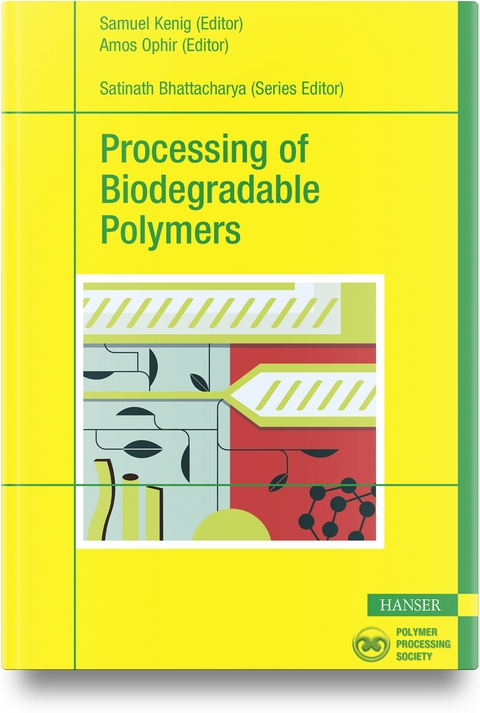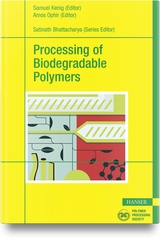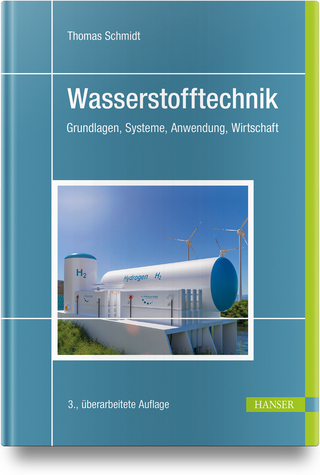Processing of Biodegradable Polymers
Hanser Publications (Verlag)
978-1-56990-873-0 (ISBN)
Biodegradable polymers (BDPs) based on renewable sources have been drawing scientific as well as industrial attention due to their potential to replace fossil derived polymers (FDPs) for a large number of applications. Furthermore, BDPs introduce the viability of bio-degradation at the end of their life cycle, thus reducing the environmental impact of most FDPs.
This book covers the basic properties of BDPs according to their classifications, the rheology of BDPs and their blends, and their numerous applications, with an emphasis on processing: As BDPs possess attractive attributes compared to FDPs (which is discussed in the book), their processing has been investigated using conventional processing technologies. However, BDPs are sensitive to the processing conditions due to their composition, which is tuned to bio-degradation. Hence, special attention has been directed to minimize the in-process degradation and enhance their final processed properties. To remedy some of the BDP processing shortcomings, special additives, fillers, and blends have been incorporated and developed with minimal effect on the BDPs' bio-degradation rate. All of these aspects of BDP processing are considered in this book, including their characteristics in extrusion, injection molding, thermoforming, blow molding, and 3D printing, as well as the processing of recycled BDPs.
Prof. Sam Kenig is Dean of Engineering & Head of Graduate Studies in Plastics Engineering at Shenkar College, Israel. He established the Department of Plastics Engineering at Shenkar College in 1994. Before joining the academia, Prof. Kenig served in various industrial R&D positions. He is the author of more than 140 papers and 19 Patents, and delivered more than 120 lectures at international conferences. Prof. Amos Ophir is Head of the Polymer Materials Engineering Department at Shenkar College, Israel, and is one of the founders of the Polymer and Plastics Engineering Department at Shenkar. Besides being a senior researcher, he has been active in Israel's polymers and plastics industry for more than thirty years. Since 2014 he is the CEO of the Israel Plastics and Rubber Center.
1. Overview of BDPs (basic properties, classifications: natural, renewable, synthetic), additives and modifiers, commercial grades, and applications compared to FDPs 2. Rheology of BDPs, their additives, blends, and composites (fibers and nanoparticles) 3. Processing characteristics of BDPs in film extrusion (cast and blown) in addition to sheets and profiles 4. Injection molding of BDPs, their blends, and composites 5. Thermoforming and blow molding of BDPs and their blends 6. 3D printing and additive manufacturing of BDPs and their blends and reinforced composites 7. Processing of recycled BDPs 8. Composition–processing–properties relationship of BDPs and their blends for specific applications such as packaging, disposable houseware, agriculture, consumer electronics, medical implants, etc.
| Erscheinungsdatum | 04.04.2024 |
|---|---|
| Zusatzinfo | 1 illustration |
| Verlagsort | München |
| Sprache | englisch |
| Maße | 152 x 229 mm |
| Gewicht | 272 g |
| Themenwelt | Naturwissenschaften ► Biologie ► Ökologie / Naturschutz |
| Technik ► Maschinenbau | |
| Schlagworte | Biodegradability • biodegradation • Bioplastics • biopolymers • Blow Molding • Extrusion • injection molding • Polylactic acid • Polylactide • Polymer Blends • Polymer processing • sustainability • thermoforming |
| ISBN-10 | 1-56990-873-7 / 1569908737 |
| ISBN-13 | 978-1-56990-873-0 / 9781569908730 |
| Zustand | Neuware |
| Informationen gemäß Produktsicherheitsverordnung (GPSR) | |
| Haben Sie eine Frage zum Produkt? |
aus dem Bereich




